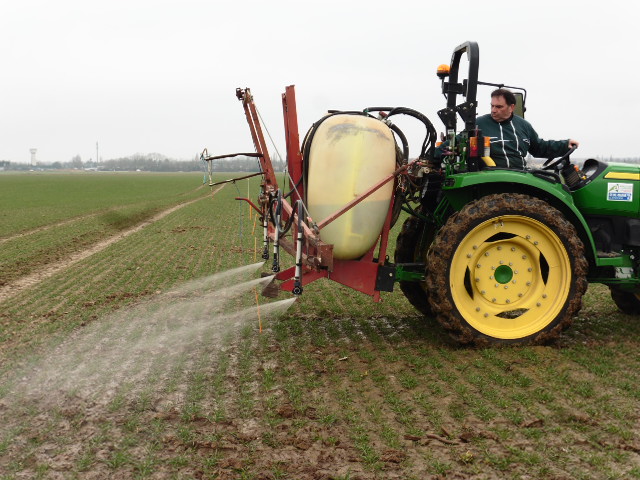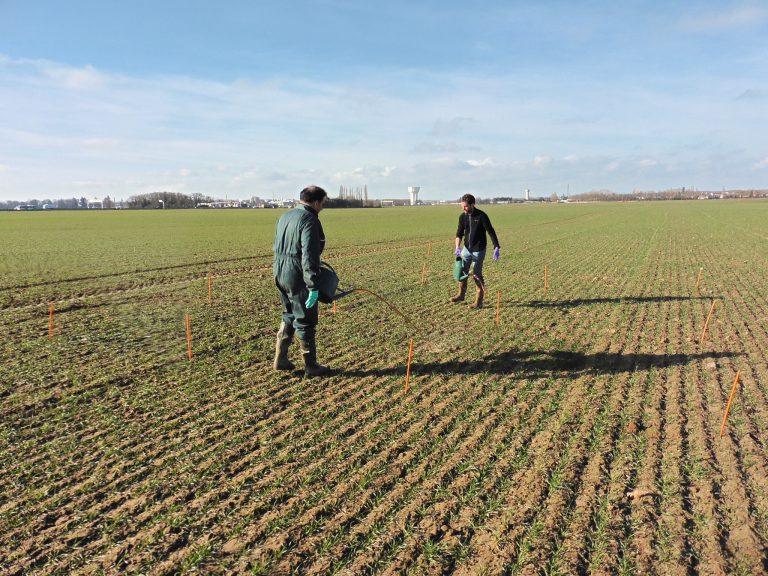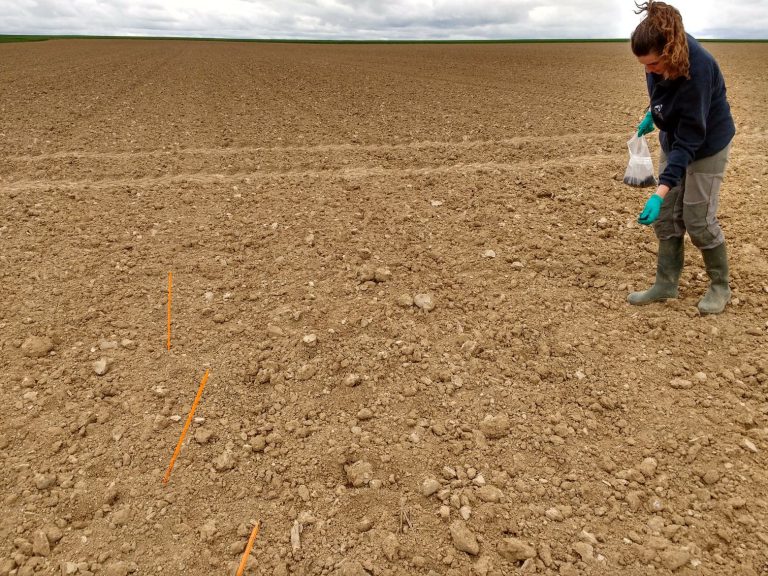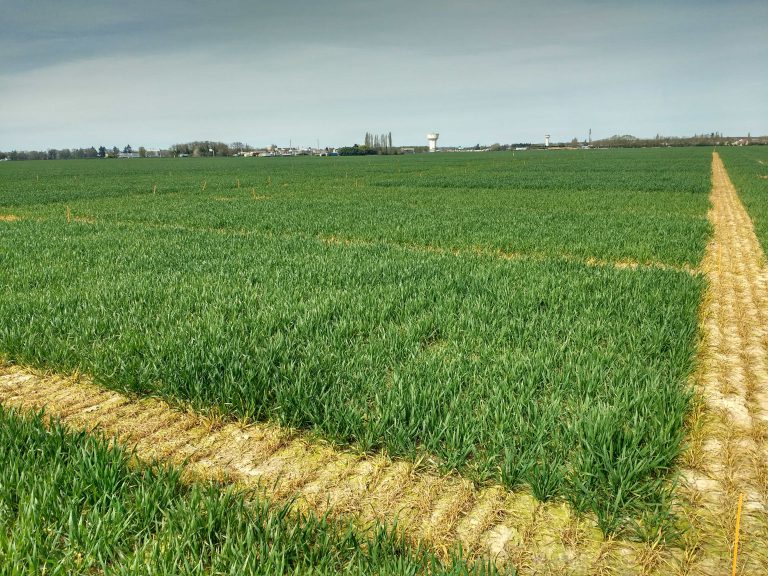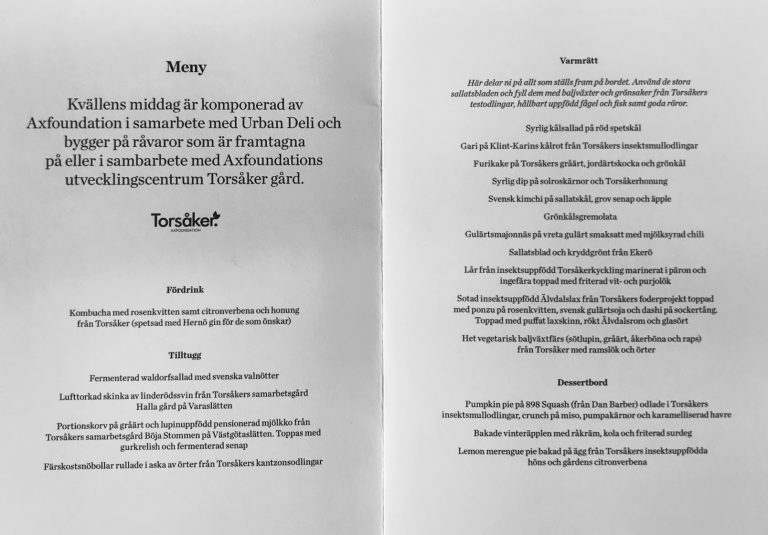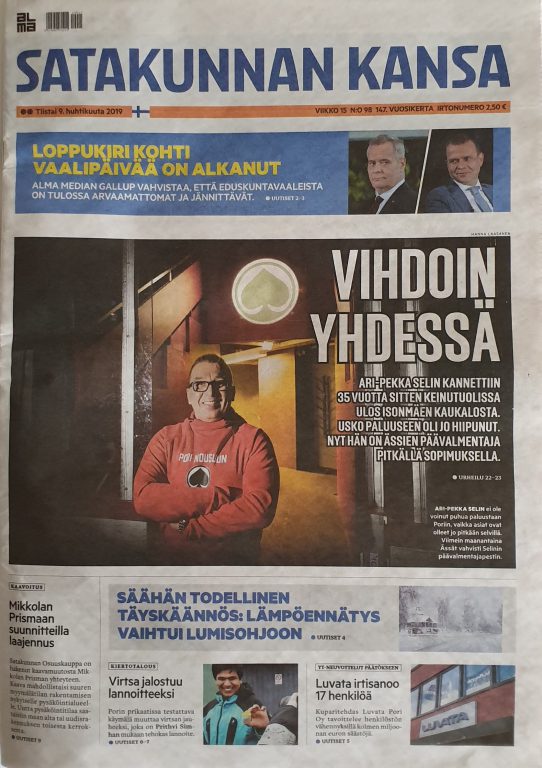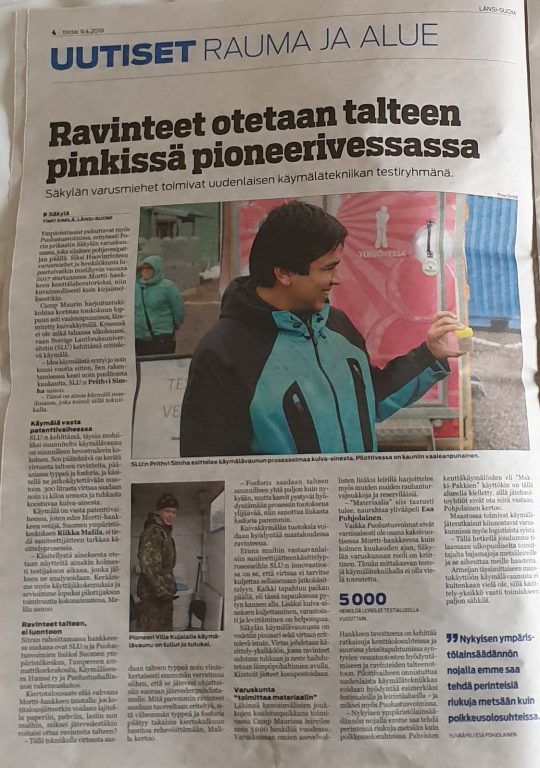Between December 2018 and February 2019, we installed and used eight family-scale urine dehydrator prototypes in Uppsala. At the end of this period, we managed to produce 40 kg of dry fertiliser (which our collegues in France call “granurin”) with a nitrogen content of 10%. We thus managed to dry nearly 500 L of urine, which is what an average person urinates in a year. This fertiliser is now being applied and tested as part of the AGROCAPI project, where the intent is to ‘study the agronomic valorization of products resulting from urine source separation’. The trials are being carried out in France by Tristan Martin and colleagues at the Institut National de la Recherche Agronomique (INRA).
Category: English
Makoto joins Kretsloppsteknik
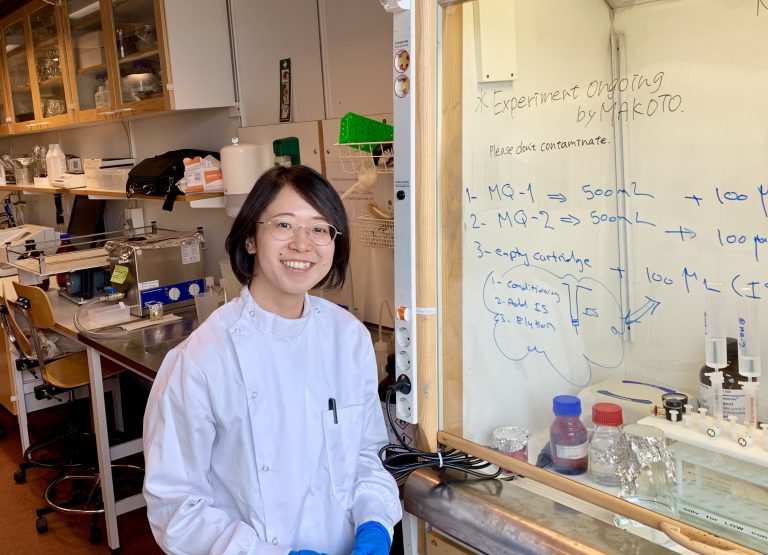
Hi, I’m Makoto from Japan. I will work on the analysis of perfluoroalkyl substance (PFAS) and pharmaceuticals in wastewater with Sahar Dalahmeh at SLU’s Kretsloppsteknik group. Since I have been interested in sanitation research right from my Environmental Engineering bachelor studies in Japan, I am grateful for this opportunity to continue to learn and work at SLU.
Project opportunity: applying urine-based fertiliser in aeroponics
Proposed Title: Identifying optimal application rates of urine-based fertilizer for basil grown in climate-controlled aeroponics chambers.
Credits: 30 credits; Level: Advanced
Subject: Technology or Environmental Science
Start: Fall 2019 (flexible)
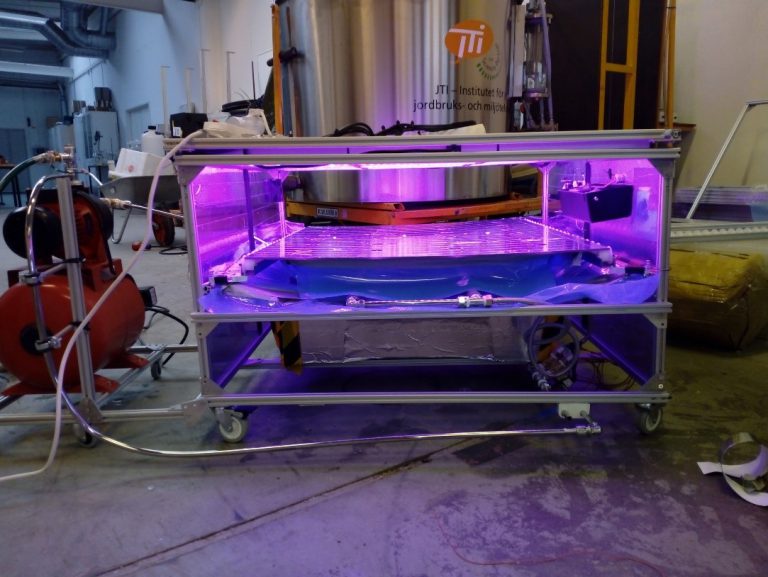
Nordic Biochar Network: Char and biochar workshop in Denmark
Char and biochar workshop 2019
Applications, characterization, production
When? Friday, May 24th 2019
Where? DTU Lyngby Campus, Søltofts Plads – Building 229 (Lounge)
Kretsloppsteknik at Uppsala city library to discuss our current water-borne sanitation system
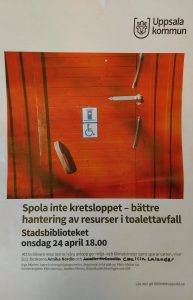
Next week, Annika Nordin and Cecilia Lalander, Researchers at Kretsloppsteknik will be at the Uppsala City Library to discuss why our current water-borne sanitation system is not as good as many might think. They will present what we believe will be the future sanitation solutions, which in a better and more efficient way safeguard and manage the resources in our sewers.
Kretsloppsteknik at the Human Nature arranged by Axfoundation
This year’s event had the theme below the surface, and brought up a wide range of interesting topics; from deep-sea research to the psychology of how we look at and manage the threat of climate change. At dinner Axfoundation presented their vision of future food and that’s where we came into the picture. On the menu were cabbage and pumpkin fertilized with frass (insect compost) from our fly larvae reared on food waste, served with chicken and rainbow trout that had insects as their main protein source. The larvae used in the feed were reared on reclaimed bread and vegetable waste from Sorunda grönsakshallar.
Urine drying research featured in Finnish media
Within the MORTTI project, our group’s urine drying technology is being piloted at Pori Brigade’s military training site in Finland. Earlier this week, as part of an organised media day event, members of our group Caroline Karlsson and Prithvi Simha alongwith MORTTI project partners interacted with several local and national media outlets. Click below to read what the media thought of this visit and our toilet system.
YLE: On TV The soldier’s piss improves the world – dry urine is a good fertilizer & In Print https://yle.fi/uutiset/3-10730337
Maaseudun Tulevaisuus: The Defense Forces are trying to recover urine as fertilizer – In the Pori Brigade exercise area there is a Biomaja field toilet
Helsingin Sanomat: In Säkylä, the nutrients of the urine are preserved, with the aim of making urine fertilizer
Satakunnan Kansa: Converting soldiers’ urine into dry fertilizer powder – a Swedish invention that can come into play at festivals in the future
Verkkouutiset: The recycling of the officers’ urine is being tested
Länsi-Suomi: Army is testing a pilot toilet in Säkylä
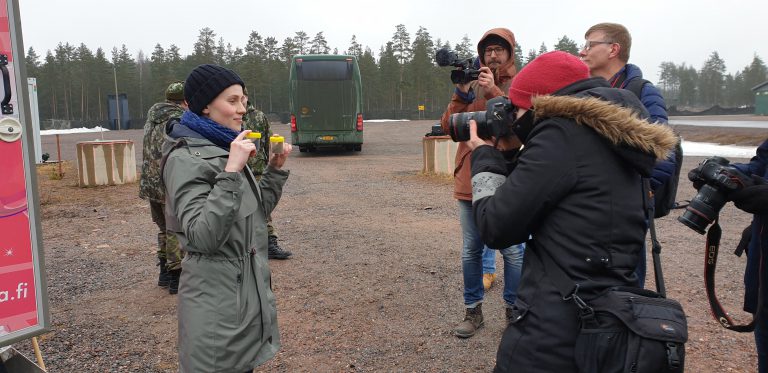
Caroline Karlsson showing the fertiliser end-product after urine drying to the media in Säkylä
Contact: Prithvi Simha
Recycling urine from soldiers as dry fertiliser: Pori Brigade, Finnish Defence Forces
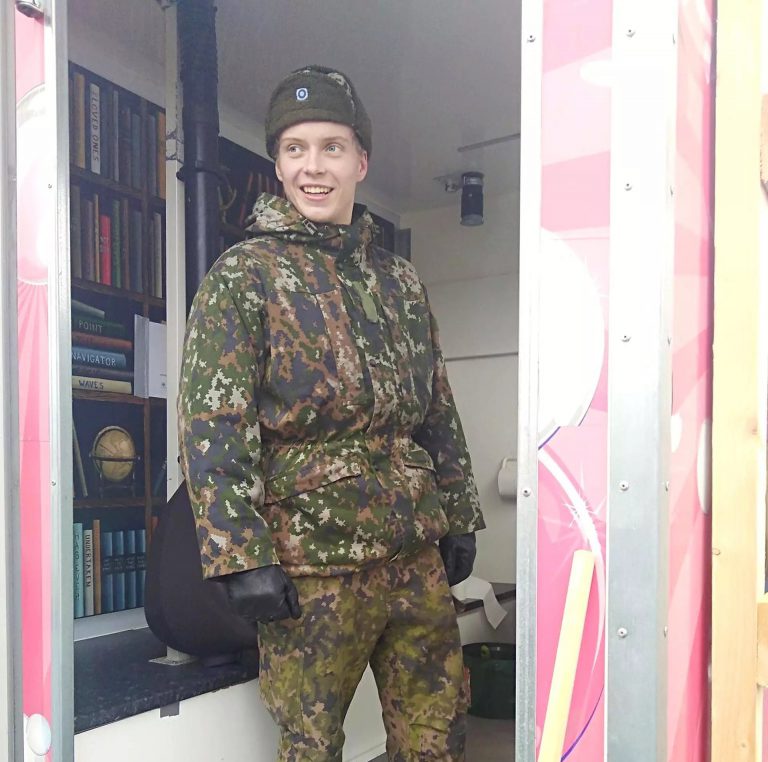
Pioneer Ville Kujala introduces the pilot system at the Säkylä garrison. PC: Käymäläseura Huussi
On the 8th of April, the MORTTI project partners organised a media day for our project in Finland that has been operational since the first week of March. This 3-month pilot stabilises and dries human urine collected from soldiers, to be safely recycled as a dry powder fertiliser. The project pilots the urine drying technology developed by our research group at SLU. Representing Kretsloppsteknik at this event were Caroline Karlsson and Prithvi Simha.
Visit from our dear neighbours
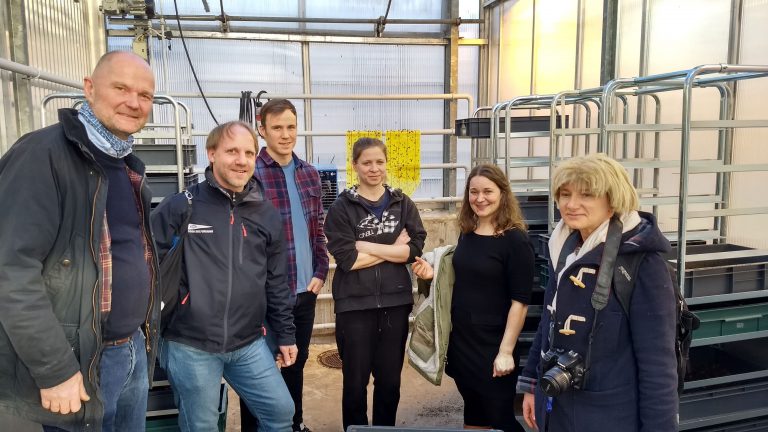
On the 12th of March we had a visit from our colleagues at the Norwegian Institute of Bioeconomy Research (NIBIO). On the visit came Trond Mæhlum, Bente Føreid, Thorsten Heidorn and Anders Enoksen. From our group Björn Vinnerås, Jennifer McConville and Cecilia Lalander joined. We presented about our different ongoing projects on safe nutrient recycling: Björn presented on urine drying and Cecilia on fly larvae composting while Jennifer presented her work on the readiness of the Swedish wastewater sector for a technology transition. We were updated on an ongoing project on sustainable and circular urban farming systems that is a collaboration between stakeholders in Europe and China (Sino-European innovative green and smart cities). We were happy to know that the delegation from Norway come to visit us for inspiration on possible technologies. We hope that we in the future will be able to collaborate on some of these exciting technologies.
Contact: Cecilia Lalander
Master’s thesis project: identifying logistics for new sanitation systems products
Proposed Title: Identifying effective transport systems and logistics for new sanitation systems that produce fertilisers from human wastes.
Credits: 30 credits; Level: Advanced
Subject: Technology or Environmental Science
Start: As soon as possible
Background: In the sanitation sector, there is growing recognition that we urgently need to change the way we handle, treat, and recycle human wastes in our environment. At the Swedish University of Agricultural Sciences (SLU), the environmental engineering research group has developed the ‘urine dehydrator’, an exciting new technology that converts liquid human urine into a hygienic, commercial-quality, dry fertiliser. The technology involves two steps, (a) using a urine-diverting toilet at home, to separately collect urine without the faeces; and (b) drying the urine within an alkaline substrate that placed is placed in the urine dehydrator.

